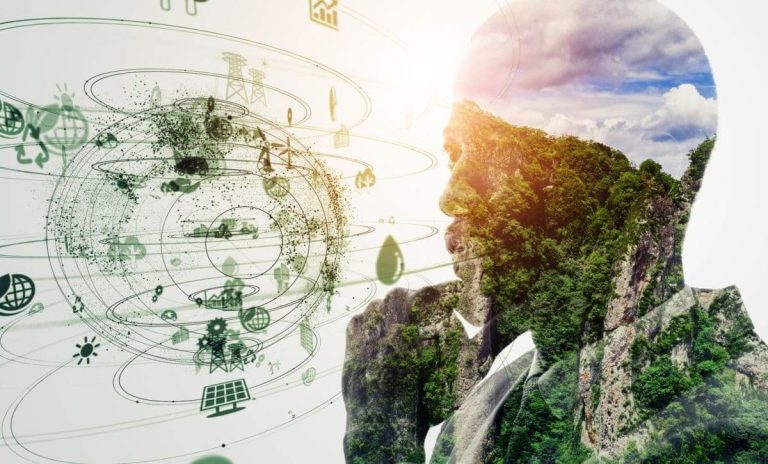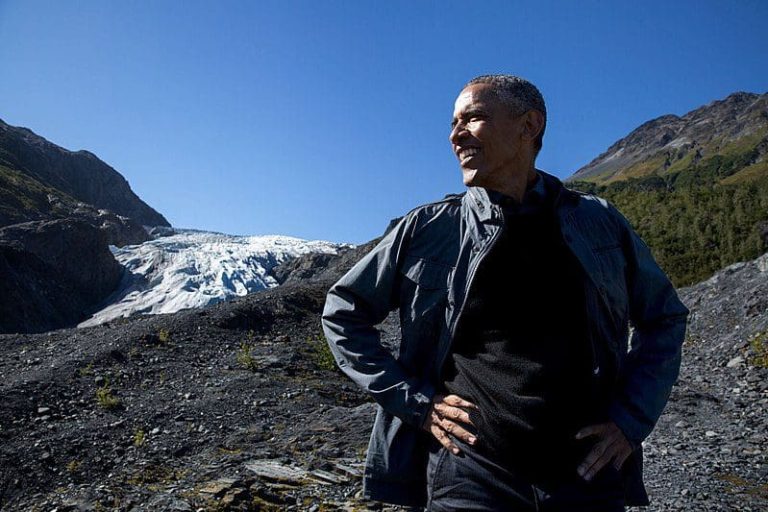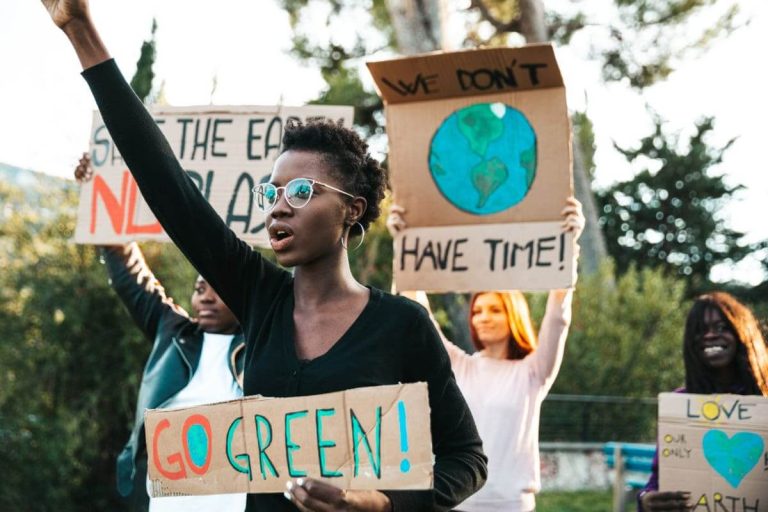
What are the biggest environmental issues the world faces today?
“There are, unfortunately, several, including problems caused by the expanding population of mankind, the need for greater resources and energy, and the relationship between mankind and the world around us.” – Zach Falcon, Vice President of Hybrid Learning at Unity College
In this guide, we’re going to take a quick overview of the issues we face and some potential answers to mitigate or reverse the effects of these problems:
1. Deforestation
From 2010-2020 deforestation decreased over the previous decade. While that small victory is something to cheer for, it isn’t all good news. In the Amazon jungle, deforestation has not decreased. In fact, in 2018, deforestation of the Amazon rainforest grew by 47 percent. What’s wrong with this picture? The Amazon rainforest plays a significant role in both the Earth’s oxygen and carbon cycles. In fact, the Amazon produces about six percent of the world’s oxygen.
To make the deforestation situation worse, the “edge effect” recognizes uncounted carbon loss. A recent study showed that the edge effect—when small segments of a forest are lost—creates a notable carbon loss, too. The loss of carbon and the edge effect is outside the mechanism that policymakers use to address carbon loss and the carbon cycle.
Which nations have the fastest rate of deforestation? According to dgb.Earth, the nation with the highest rate of deforestation is Honduras, after that comes Nigeria and the Philippines, in that order. The rest of the top ten list is comprised mainly of underdeveloped countries that are approaching the developed-nation status.
Deforestation: How you can help
Research is one of the best ways to change an environmental negative into a positive. Through education, you can change how people, from top CEOs to young consumers, see these issues.
You can also pitch in at the grassroots level. Some jobs allow you to work with local populations to change the laws that govern forests. An eco-tour guide is one option; a community teacher is another. Many jobs, such as those in forestry and conservation help you change how natural resources, such as forests, are cared for in the short and long term.
2. Air Pollution
What are the most significant sources of air pollution in the world? The number one spot on that list goes to human activity—motor vehicle exhaust, heating and cooling homes, burning fossil fuels to create electricity, and similar activities.
One of the most significant contributors to poor air quality is poor urban planning. When people are clustered together in an unorganized way, it becomes difficult to get to work, shop for groceries, or take children to school. All of those tasks suddenly require a personal vehicle, which means more exhaust, more fuel, and more time away from home. The result is a plethora of community illnesses and diseases such as COPD, asthma, bronchitis, and other respiratory diseases.
Grid-based electricity is another contributor to poor air quality. In the US, we burn coal and fossil fuels to produce much of the electricity we use in our homes and businesses. According to the Energy Information Administration (EIA), 19.3 percent of the nation’s electricity in 2020 came from burning coal. Most of our fossil-fuel produced electricity in 2020 came from burning natural gas—40.3 percent.
Air Pollution: How you can help
There are many jobs in the environmental health industry. Air quality inspectors are on the front lines helping identify companies that are heavy polluters. Environmental law is another area where you have the option of effecting change through litigation so that companies are forced to lower emissions. Education, both as a scientist and through the private sector, teaches people about air pollution and its many pitfalls. Corporate America is always looking for cheaper forms of energy or ways that extend the ROI on the energy they buy. There is also the potential of discovering new ways to make electricity that do not pollute the air, such as creating energy from growing algae.
3. Global Warming
2020 was an odd year. With so many people forced to stay home, the amount of pollution from driving automobiles decreased so much that the hole in the ozone layer over Antarctica closed according to the WMO (World Meteorological Organization).
Ozone is a ground-level pollutant, but it shields the Earth from incoming solar radiation in the higher levels of the atmosphere. Without Ozone, the Earth gets warmer. Ozone is a molecule of three oxygen atoms. When carbon is released into the atmosphere, it destroys Ozone. The single carbon molecule attracts two of the oxygen molecules from O3, leaving just one Oxygen molecule. That process takes a single carbon molecule and combines it with two oxygen molecules to produce CO2 or carbon dioxide. In our united efforts to combat a pandemic, we accidentally fixed the hole in the ozone layer.
As the world continues to change, that forward momentum can continue. Other factors such as deforestation, the creation of infrastructure in cities, the loss of farmland to urban sprawl, and a host of other actions contribute to an increase in global warming (aka Climate Change).
Still, we face erratic weather, flooding, massive wildfires, and poor water quality. Each year habitat loss increases due to all of these factors.
Global Warming: How you can help
Much of the pollution that increases the Earth’s temperature comes from the production and use of fuels. We burn fossil fuels to create electricity. We burn fossil fuels to power vehicles. We burn fossil fuels to warm our homes. A focus on how we use energy is a start.
Careers in environmental science, renewable energy, and engineering are focused on developing new forms of energy and expanding of sustainable energy sources, such as solar. Pursuing a career in one of these areas can be a part of the answer to how we lower the Earth’s temperature and fight against man-made climate change.
4. Water Pollution
The Earth is covered with water—71 percent. And yet, of all the water in the world, only three percent is fresh. We have slowly been poisoning the water in our lakes, rivers, wells, streams, and rain with toxins, chemicals, and biota that may be dangerous—both to our health and to the planets’ health. According to the National Resources Defense Council, about 80 percent of the wastewater created is dumped back into the environment untreated.
As agriculture increases to feed a growing population, farm runoff pollutes groundwater. According to the EPA, half of all rivers and streams and a third of all US lakes are polluted to the point where swimming is unsafe.
Water pollution is a worldwide health problem. There are more deaths each year from water pollution than from issues that get more exposure, such as war. The degree of water pollution is expected to increase by the year 2050, at which time the demand for clean water will also increase by roughly 33 percent over today’s demands.
Water Pollution: How you can help
Agriculture is in dire need of finding ways to produce foods that do not pollute the water. Runoff from agriculture causes the Dead Zone—areas of water in which marine life exits due to negligible amounts of oxygen—to appear each summer in the Gulf of Mexico. Research, education, grassroots teaching, technology development, and other areas are excellent vessels to make a difference. If you are interested in actively improving water conditions, you might consider a career as in environmental science and water pollution control.
5. Natural Resource Depletion
On the world stage, natural resources drive economic growth. In the US, the focus of the EPA is to reduce the rate of usage for non-renewable resources and to monitor and ensure that renewable resource usage is not so great that they, too, become unsustainable.
Natural resource depletion is an everyday event. The loss of natural resources ranges from deforestation to pollution that contaminates freshwater. The use of natural resources pivots around industries such as energy production, manufacturing, construction, and more. Some are ingredients in other highly used materials. An example is Bauxite, which is one of the ingredients in making aluminum.
Countries are coming to the hard reality that peak resources are a common way of life now. How long will crude oil supplies last? How long will rare earth minerals last? We hope to mine meteorites and nearby solar objects, such as the moon, Mars, and deep space objects such as comets.
Natural Resource Depletion: How you can help
Exploration is high on the list of ways we can help improve how we handle natural resources. Some are sustainable, and others are finite. We have only explored 20 percent of the world’s oceans, and that leaves a whopping 80 percent of the underwater world unmapped—perhaps unseen. Cataloging organisms from insects to plants to rocks and minerals is also paramount.
But in order to protect our natural resources from depletion, we must continue to evolve our habits and behaviors. “Reduce, Reuse, Recycle” is the mantra from the Environmental Protection Agency that inspires us to ask how can we use less/drive less/buy less, find ways to reuse and repurpose things we have before throwing them out. Finally, to recycle as many materials as possible so they don’t end up in landfills and reduce the amount of raw materials needed to create new.
Become Part of the Solution
Many people want to help, but not everyone has the skills needed to become a frontline warrior or a super sleuth who uncovers and documents critical discoveries. The fact is there are many ways to help for those who want to make a difference for the environment. The secret is hybrid learning at Unity College. When you enroll in one of the five environmental hybrid programs, you learn real-world skills and a deep understanding of the natural world. If you are ready to become an effective advocate for environmental change, check out the degree programs that empower you to become part of the solution.
Unity College Hybrid Learning degrees give students the opportunity to learn in-person, online, or both. The environmental programs offered in our hybrid format include:
- BS in Conservation Law Enforcement
- BS in Captive Wildlife Care
- BS in Wildlife and Fisheries Biology
- BS in Environmental Studies
When you opt for a BS in Conservation Law Enforcement, you can help to protect natural resources and organisms from exploration. You can also work within a community to develop policies and laws that protect existing habitats from depletion. With the range of jobs with this hybrid degree, you will find rewarding challenges and make a difference in the quality of the world around us.
A BS in Captive Wildlife Care is essential as we move forward to protect species on the brink of extinction. Learning how to build habitats that meet the needs of specialized creatures to thrive in captivity is essential. Working in a frantically paced environment to save or rehab organisms that would otherwise vanish is critical. As the world faces the onslaught of poor water quality, loss of habitat due to urban sprawl and poor city designs, and other issues that impact lives around us, you can make a difference.
A BS in Wildlife and Fisheries Biology is an excellent tool to help defend the world from loss of habitat, data collection, and research into assets that we barely recognize. Those struggles put biologists on the front line and into positions where they can be part of a movement that protects, saves, and changes the quality of life for everyone and everything.
A BS in Environmental Sciences is a gateway to helping the world’s population learn about the world around them. Through positive education that uplifts and values the natural world, you can help decrease the rate of climate change, habitat loss and increase water quality, air quality, and quality of life for both humans and wildlife.
A BS in Environmental Studies is a tool that enables you to explore, map, and discover the uncharted parts of the world. Whether exploring the oceans or cataloging plants, animals, and insects in remote jungles, it is a step forward.
Each of these programs is a gateway that enables students and graduates to learn the skills, build tools, and the deep learning to make positive changes in the world—for the world. If you are interested in learning more about the hybrid learning programs offered at Unity College, contact us today.



